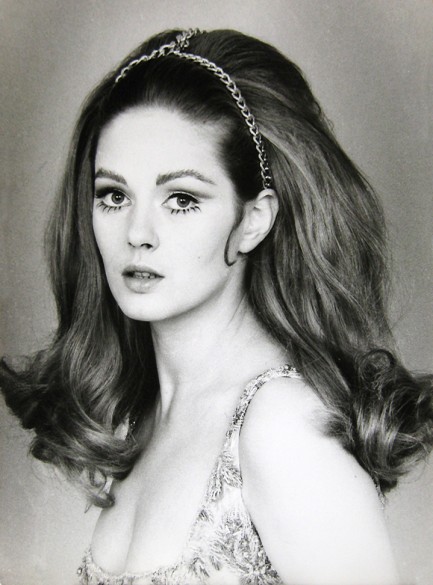| Femmes Fatales | Apr 26 2019 |

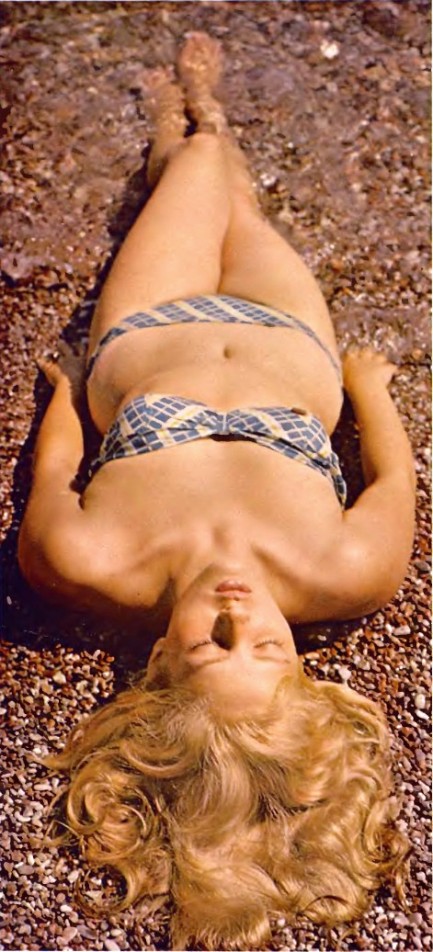
| Vintage Pulp | Feb 12 2017 |

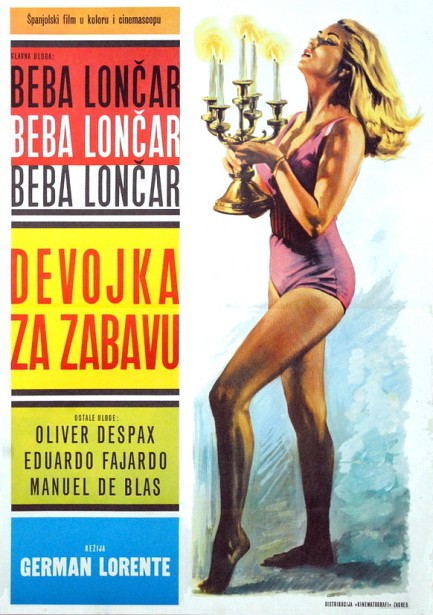
Above you see a poster from the former Yugoslavia, in Serbo-Croatian (we think), for the film Devojka za zabavu, starring Beba Lončar. We haven't watched this, so no summary, but it's available should you feel the urge. We're primarily interested in the art. The poster says this is a Španjolski film, or Spanish film, and indeed it was originally made in Spain as Amor en un espejo, and titled in the U.S. Cover Girl. The poster was adapted from the Spanish promo art painted by Carlos Escobar, who signed his work as Esc. On the Spanish version his signature is prominent, but the Yugoslavians decided to wipe it out for some reason. We already showed one example of Escobar's talent featuring Sharon Tate, and it may be one of the most beautiful of the hundreds of posters to adorn Pulp Intl. over the years. This one, which uses the lovely Lončar as a model, is also good. Evidence of what a big star the Serb actress was in her native Yugoslavia exists in her name, thrice repeated above the film's title, which is not how the Spanish poster was set up. Check out the Tate promo here. And check out Lončar here. Amor en un espejo premiered in Spain today in 1968.
| Musiquarium | Jun 13 2016 |

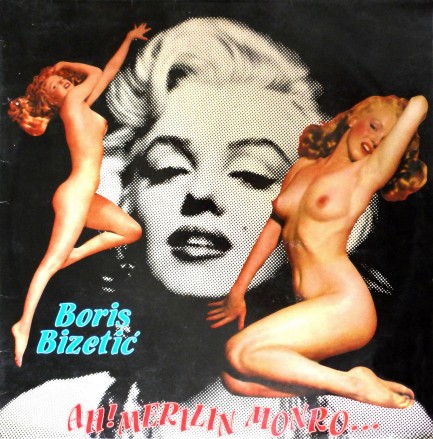
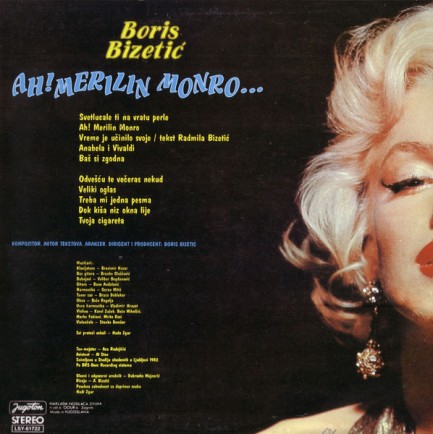
Here's little curio from the former Yugoslavia—a record sleeve from Serb pop-rock artist Boris Bizetić with a Marilyn Monroe cover motif. We've seen her image rather poorly used on album covers, but this one is nice, we think, if almost certainly unlicensed. And the music? Hah hah. We dare you.
| Femmes Fatales | May 29 2015 |

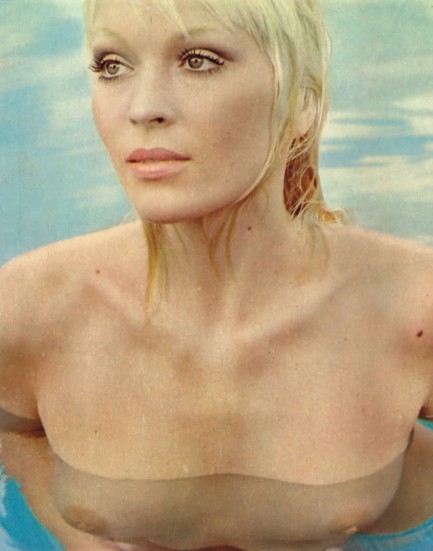
| Vintage Pulp | Jan 19 2015 |

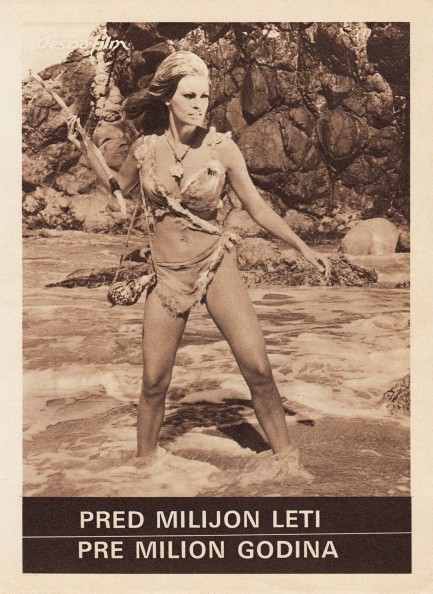
We’re looping back to the former Yugoslavia today, this time with a rare film program for Raquel Welch’s One Million Years B.C. If it seems we just talked about this movie, you’re right. We shared a promo from the film last week. What you see above is the front of a dual language promo pamphlet, half written in… well we aren’t sure. The language situation is complicated there. Half in Serbo-Croatian and half in Slovenian, we think. Feel free to correct us. In any case, it’s a pretty cool little item.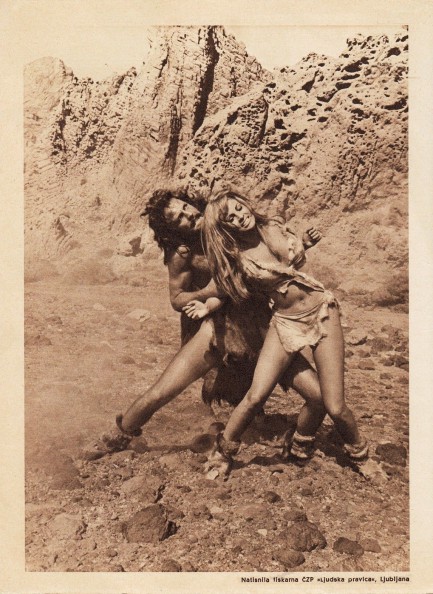
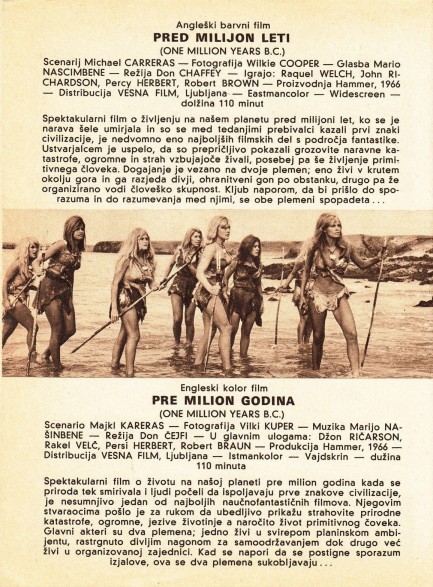
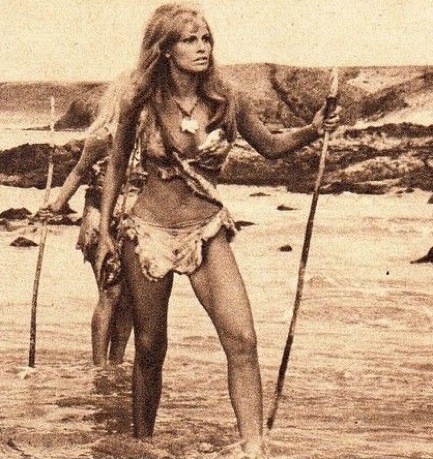
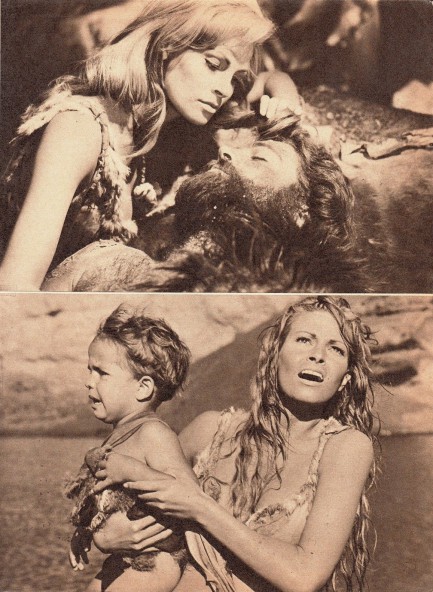
| Vintage Pulp | Jan 14 2015 |

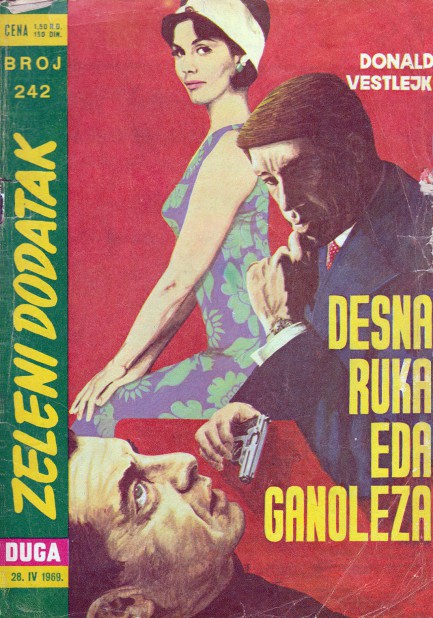
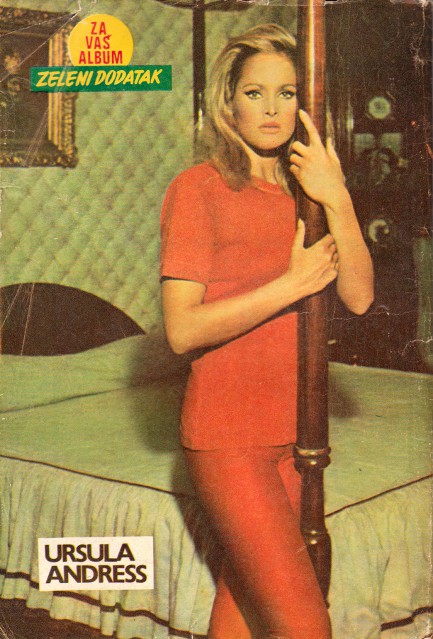
Duga was a publisher in the former Yugoslavia that reprinted many English language mysteries and thrillers into Serbian. The company’s name means Rainbow, and this novel from Donald E. Westlake was released in 1969 as a Zeleni Dodatak, or Green Edition, with Ursula Andress on the back. We have no idea why she’s there. We assume Duga put random hotties on the rear covers to entice buyers. The text there says “to your album,” which we like to think of as a mental album, like a spank bank, but that’s just us being rude. Obviously, the term refers to one’s collection of Green Edition back cover celebs. Collect them all and win a prize! That’s right! A weeklong trip to Zlatibor! Okay, now for what we don’t know. We don’t know which Westlake book this is. Desna Ruka translates from Serbian as “right hand,” but Eda Ganoleza translates as nothing—at least on the interfaces we used. A scan of the Westlake bibliography turns up no novel containing right hand in the title. So your guess is as good as ours. Doubtless people in Zlatibor know.
| Femmes Fatales | Sep 4 2014 |

